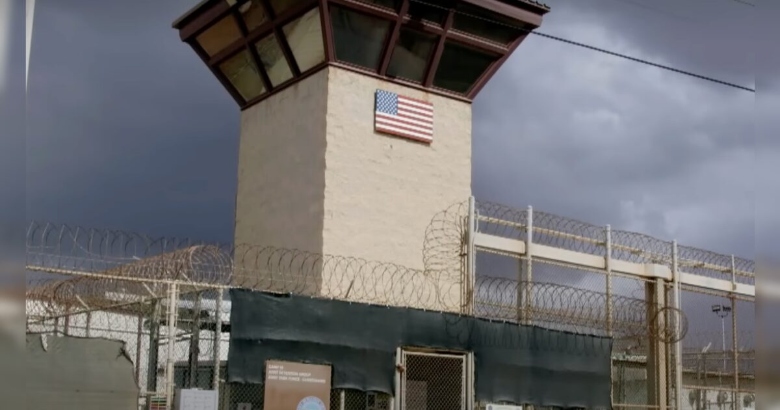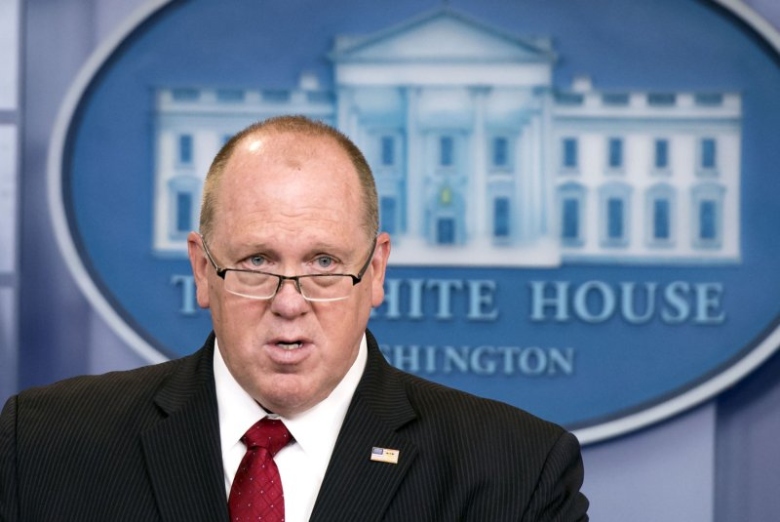In a move that has reignited fierce debate over national security and American leadership, President Joe Biden has authorized the release of 11 Yemeni detainees from Guantanamo Bay.
Christian Talk Podcast
These men, all with confirmed ties to Al-Qaeda, were transferred to Oman, where they are expected to “start new lives.” Critics have slammed the decision, warning that it could lead to deadly consequences for the United States and its allies.
The released detainees include:
- Uthman Abdul al-Rahim
- Muhammed Uthman
- Moath Hamza Ahmed al-Alwi
- Zuhail Abdo Anam Said al-Sharabi
- Hani Saleh Rashid Abdullah
- Omar Mohammed Ali al-Rammah (a.k.a. Zakaria Al-Baidany)
- Tawfiq Nasir Ahmed al-Bihani
- Sanad Yislam al-Kazimi
- Hassan Mohammed Ali Bin Attash
- Abdu Ali al-Hajj Sharqawi
- Abdulsalam al-Hela (a.k.a. Abd al-Salam al-Hilah)
Captured in the aftermath of the 9/11 attacks, these individuals were detained between 2002 and 2004. Before arriving at Guantanamo Bay, many were held at secret CIA “black sites” due to their high-risk profiles and connections to terrorist activities.
This latest release reduces Guantanamo Bay’s detainee population from 30 to just 15 prisoners. It follows the recent transfer of four other detainees from Kenya, Tunisia, and Malaysia. The Biden administration has argued that these releases are part of a broader effort to wind down operations at Gitmo, asserting that the detainees no longer pose a credible threat.
Top Immunity Support For The Times:
Immune systems can be weakened by poor diet, lack of sleep, and countless other environmental factors.
Our products may help support your body’s natural defenses.
Save 15% W/ Code “SAVE”
Visit: https://GetZStack.Com
Includes FREE SHIPPING in USA
Critics, however, see the move as dangerously naive.
“This isn’t just about releasing prisoners—it’s about putting American lives at risk,” warned a national security expert. “These individuals were captured for a reason, and history has shown that many released detainees return to terrorism.”
Under the Obama administration, at least 20 former Guantanamo detainees rejoined terrorist organizations, with 12 directly implicated in attacks that killed six Americans. The George W. Bush administration, which transferred 540 detainees during its tenure, faced similar fallout.
The Biden administration’s decision to follow this controversial path has drawn sharp criticism, with detractors accusing the president of prioritizing political optics over national security.
Guantanamo Bay has long been a contentious symbol of America’s war on terror. Established in the wake of 9/11, the detention center was intended to house high-risk individuals outside the traditional legal system. While advocates argue that Gitmo is essential for safeguarding the nation, critics have condemned its human rights record and the indefinite detention of prisoners without trial.
Under the Obama administration, efforts to close Guantanamo Bay faced both political and logistical hurdles. While the prison population was significantly reduced, the release of high-risk detainees led to widespread condemnation after some rejoined terrorist groups.
Biden’s recent actions echo this controversial history. The president’s critics have pointed to the troubling recidivism rate among former Gitmo detainees as evidence that these transfers are dangerously misguided.
Former President Donald Trump has long been a staunch advocate for keeping Guantanamo Bay operational. During his first term, Trump vowed to “load it up with some bad dudes” and criticized the Obama administration for its handling of detainee releases.
As Biden’s presidency nears a potential end, Trump’s supporters are looking to him as a counterweight to what they see as Biden’s reckless policies. Trump has framed his position on Gitmo as part of a broader commitment to national security, emphasizing the importance of preventing high-risk individuals from rejoining terrorist networks.
However, with detainees already returning to the battlefield under previous administrations, many fear that Biden’s actions have already set the stage for further instability.
Oman has pledged to monitor the released detainees, but experts remain skeptical about the effectiveness of such oversight. With a history of released Gitmo prisoners resuming their roles in terrorist networks, many question whether Oman’s assurances will be enough to prevent future threats.
The Biden administration has defended its decision, emphasizing that the detainees no longer pose a credible threat. However, critics argue that these assurances ring hollow given the track record of recidivism among former Gitmo inmates.
The release of 11 Yemeni detainees from Guantanamo Bay has reignited a polarizing debate over the balance between national security and human rights. While the Biden administration insists that the releases are part of a broader strategy to close Gitmo, critics warn that the move could have dire consequences.
As the nation grapples with the implications of this decision, one thing is clear: the stakes are higher than ever. With American lives potentially hanging in the balance, Biden’s actions will likely remain a focal point in political and security discussions for years to come.




Every American knows Obama and his deep state is making these treasonous decisions..Biden doesn’t have sense enough to even think of this… Obama is ramming everything through he can before Trump is inaugurated, knowing no one will stop him continue destroying America in every way he and his ilk can…Hurry January 20th and get this garbage and treasonous bunch out of our White House….
Mental illness is a reason for admittance!!!! It is time to admit Biden top a mental institution!!!!! Immediately!!!!!!